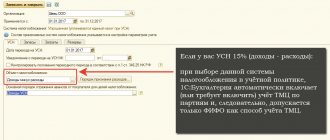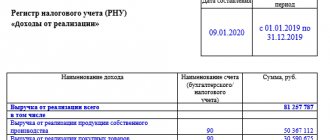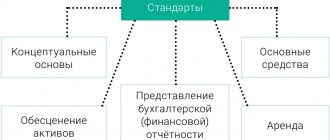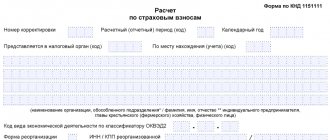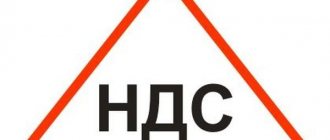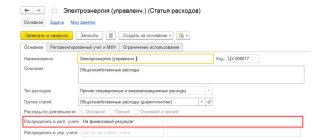From July 1, 2021, two new articles appeared in the Labor Code of the Russian Federation (hereinafter referred to as the Labor Code): 195.2 and 195.3 (introduced by law dated May 2, 2015 No. 122-FZ). They contain the rules for applying professional standards and the procedure for their development. In some circumstances, the use of professional standards is mandatory; in other cases, this issue is decided at the discretion of the employer. The Ministry of Labor warned entrepreneurs and company managers that the application of these standards is not grounds for dismissal of employees who were hired before their introduction.
What is a professional standard
A professional standard is a characteristic of the qualifications required for an employee to carry out a certain type of professional activity. This is the norm of Part 2 of Article 195.1 of the Labor Code of the Russian Federation.
At the same time, a professional standard is a document that describes labor functions for a certain type of activity, as well as the requirements for the knowledge, skills and experience of specialists performing these functions.
In structure, all professional standards are approximately the same, since they are compiled on the basis of a standard layout approved by Order of the Ministry of Labor of Russia dated April 12, 2013 No. 147n.
Unlike qualification reference books (EKS* for white-collar positions and ETKS** for blue-collar professions), where each section is devoted to one position or area of work, a professional standard may contain requirements for different positions (professions) and differentiate the qualification levels of workers etc. (Note that the qualification levels of workers used to develop professional standards were approved by order of the Ministry of Labor of Russia dated April 12, 2013 No. 148n.) It can be said that in professional standards the labor functions of workers are described more clearly and in detail than in qualification reference books .
It is expected that professional standards will gradually replace qualification reference books (clause 16 of the Comprehensive Action Plan for the development of professional standards, approved by Order of the Government of the Russian Federation No. 487-r 31.03.14, clause 4 of the information of the Ministry of Labor of Russia dated 04/05/16).
How to read the professional standard: the beginning
So, how to read the professional standard. The name comes first, followed by the registration number. If it is not there, the document has not yet been approved, it is a draft and its use is not yet recommended. Next, you need to look not at the scope of application, codes of economic activity, but at Part II - description of labor functions. If at least one of the job functions suits your employee, feel free to read further this PS. But pay attention to the level of qualification - it can be seen in the same table. Your employee can perform work, for example, at the managerial level (7-8), and the title of his position corresponds to a lower level (5-6) and the salary is appropriate.
If such a situation arises, there are two options: either reduce the employee’s responsibilities, or rename his position and raise wages. In any case, you will have to change your documents.
Areas of application of professional standards
Paragraph 25 of Rule No. 23 stipulates that professional standards are applied by employers in the following cases:
- in the formation of personnel policy and personnel management;
- when organizing training and certification of employees;
- when developing job descriptions;
- when calculating work, assigning tariff categories to employees;
- when establishing remuneration systems, taking into account the peculiarities of the organization of production, labor and management.
New norm on the application of professional standards
From July 1, 2021, a new article 195.3 of the Labor Code of the Russian Federation, which is devoted to the application of professional standards, will come into force. To answer the question of whether anything will change in the practice of applying professional standards from this date, let’s consider the provisions of part one and part two of this article.
Part 1 of Article 195.3 of the Labor Code of the Russian Federation
Quote
“If the Labor Code, other federal laws, and other regulatory legal acts of the Russian Federation establish requirements for the qualifications necessary for an employee to perform a certain job function, professional standards in terms of these requirements are mandatory for application by employers” (Part 1 of Article 195.3 of the Labor Code of the Russian Federation).
“Employee qualifications - the level of knowledge, skills, professional skills and work experience of the employee” (Part 1 of Article 195.1 of the Labor Code of the Russian Federation).
Indeed, legislation imposes certain requirements on the qualifications of certain categories of workers. For example, the requirements for the level of education and work experience of chief accountants (or persons entrusted with accounting) are established in Part 4 of Article 7 of the Federal Law of December 6, 2011 No. 402-FZ “On Accounting” (hereinafter referred to as Law No. 402-FZ ). True, these requirements apply only to JSCs (with the exception of banks), insurance organizations, non-state pension funds and some other organizations. The chief accountant who is applying for a job in such an organization must meet the following criteria:
- higher education;
- work experience related to accounting, preparation of financial statements or auditing activities for at least three years out of the last five calendar years. If there is no higher education in accounting and auditing, the experience must be at least five years out of the last seven calendar years.
Now let’s look at the professional standard “Accountant” (approved by order of the Ministry of Labor of Russia dated December 22, 2014 No. 1061n). Clause 3.2 of this professional standard states that the chief accountant must have either a higher education or secondary vocational education. In addition, additional education is provided - advanced training or professional retraining (based on the letter of the Ministry of Labor dated January 12, 2016 No. 14-3/B-3, it can be assumed that additional education is necessary if the main education of the chief accountant is not specialized). At the same time, the requirements of the professional standard regarding the work experience of the chief accountant are similar to the corresponding requirements of Law No. 402-FZ. (For more information about the professional standard “Accountant”, see “The professional standard “Accountant” has been approved: what are the requirements now for the profession” and “The Ministry of Labor has clarified how to apply the professional standard “Accountant””).
Since from July 1, 2021, professional standards become mandatory in terms of those qualification requirements established by the legislation of the Russian Federation, it turns out that having a higher education is mandatory if the chief accountant will work in an organization that is included in the list specified in Part 4 of Article 7 of Law No. 402-FZ (for example, in an insurance company). In other cases, according to the professional standard “Accountant”, the chief accountant can have either a higher education or secondary vocational education and, if necessary, must complete advanced training or retraining courses.
Does this mean that by July 1, 2021, chief accountants are required to bring their qualifications into compliance with the requirements of the professional standard “Accountant”, in particular, take advanced training courses or retraining? Accounting Online addressed this question to the Deputy Head of the Federal Service for Labor and Employment, Ivan Shklovets. According to him, the legislation does not provide that by July 1, 2021, workers are required to receive education or undergo training, which is provided for in professional standards. “They have the right to do this, but only if they consider it necessary,” noted Ivan Shklovets.
As for employers, they can decide to send employees to advanced training courses or retraining in order to meet their requirements of professional standards. However, employers have no such obligation. According to Article 196 of the Labor Code of the Russian Federation, the need for training (vocational education and vocational training) and additional professional education of employees for their own needs is determined by the employer. This is reported in paragraph 11 of the Information of the Ministry of Labor dated 04/05/16.
Keep in mind
Additional education provided for in many professional standards, including the professional standard “Accountant”, includes programs for advanced training and professional retraining. The minimum permissible period for mastering advanced training programs is 16 hours, and professional retraining programs - 250 hours (clause 12 of the Procedure, approved by order of the Ministry of Education and Science of Russia dated July 1, 2013 No. 499). The organization that conducts such training must have a license to carry out educational activities according to the relevant program (Part 1, Article 91 of the Federal Law of December 29, 2012 No. 273-FZ “On Education in the Russian Federation”).
Let us note that some experts propose a different interpretation of Part 1 of Article 195.3 of the Labor Code of the Russian Federation. In their opinion, the professional standards approved by the Ministry of Labor and published can be attributed to those regulatory legal acts of the Russian Federation that are mentioned in this norm. This means, such experts say, from July 1, 2021, the requirements of all accepted professional standards become mandatory for employers. However, according to Ivan Shklovets, this conclusion is incorrect, since it is refuted by the provisions of Part 2 of Article 195.3 of the Labor Code of the Russian Federation.
Part 2 of Article 195.3 of the Labor Code of the Russian Federation
Quote
“The characteristics of qualifications that are contained in professional standards and the mandatory use of which is not established in accordance with part one of this article are used by employers as the basis for determining the requirements for the qualifications of workers, taking into account the characteristics of the labor functions performed by employees, determined by the technologies used and the adopted organization of production and labor" (part 2 of article 195.3 of the Labor Code of the Russian Federation).
In other words, if the legislation of the Russian Federation does not contain mandatory requirements for the qualifications of a particular category of workers, then the employer has the right to use the corresponding professional standard only as a recommendatory methodological document.
As an example, we can name the professional standard “Human Resources Management Specialist” (approved by order of the Ministry of Labor of Russia dated October 6, 2015 No. 691n). The current legislation of the Russian Federation does not impose requirements for the qualifications of human resources specialists, therefore the use of the specified professional standard is not mandatory. At the same time, on the basis of this standard, it is possible to determine the names of positions, establish the labor functions of workers, requirements for their education and work experience, etc. But since in this case the professional standard will only be a guideline, the employer has the right to introduce softer or, conversely, more stringent requirements than those specified in the standard.
Can an employer, for whom the use of professional standards by virtue of Part 2 of Article 195.3 of the Labor Code of the Russian Federation is not mandatory, not take them into account at all? “This is possible,” answers Ivan Shklovets. “But you shouldn’t completely ignore professional standards.”
When do off-budget funds and state-owned enterprises need to switch to professional standards?
The legislator allocates extra-budgetary funds and other organizations, the controlling stake of which is in the hands of the state, into a separate group in terms of introducing the provisions of professional standards into their activities. The authority to establish the fact that standards are mandatory for such companies has been transferred to the Government of the Russian Federation, and the opinion of the Tripartite Commission for the Regulation of Labor Relations must be taken into account.
On June 27, 2016, Resolution No. 584 of the Government of the Russian Federation was adopted, which establishes the specifics of the application of professional standards in terms of requirements mandatory for use by extra-budgetary funds and state-owned enterprises. In particular, he established a transition period until 2021, during which enterprises must implement professional standards based on a pre-approved plan.
Current issues on the application of professional standards
Article 195.3 of the Labor Code of the Russian Federation, which comes into force on July 1, 2021, is called “Procedure for the application of professional standards.” However, legislators have not defined a clear methodology for introducing professional standards, the use of which is mandatory. Also, no algorithm of actions is provided in case the employer decides to use professional standards on a voluntary basis. In addition, the consequences for workers who do not meet the requirements of professional standards have not been established. In this regard, quite a lot of questions arise about what changes may occur in the relationship between employees and employers from July 1, 2021. Here are the answers of Ministry of Labor officials to some of these pressing questions.
Do professional standards need to be taken into account when employing new workers from July 1, 2021?
An employer does not have the right to hire a person who does not meet the requirements of professional standards in cases provided for by the provisions of Part 2 of Article 57 and Article 195.3 of the Labor Code of the Russian Federation. In other situations, the requirements of professional standards are advisory in nature (clause 6 of the Information of the Ministry of Labor dated 04/05/16).
Are professional standards mandatory for all employers or only for state and municipal organizations?
The mandatory application of the requirements of professional standards is established for cases provided for in articles and 195.3 of the Labor Code of the Russian Federation, and does not depend on the form of ownership of the organization or the status of the employer (clause 7 of the Information of the Ministry of Labor dated 04/05/06).
If for the same position (profession) the qualification reference book and the professional standard contain different qualification requirements, then which document should be used?
The employer has the right to independently determine which of these regulations he will apply. Exceptions may be established by the legislation of the Russian Federation (clause 5 of the Information of the Ministry of Labor dated 04/05/16).
Is it possible to fire an employee if his level of education or work experience does not meet the requirements of the professional standard?
The entry into force of a professional standard is not a basis for the dismissal of workers who do not meet its requirements (clause 10 of the Information of the Ministry of Labor dated 04/05/16).
Is the adoption of a new professional standard the basis for an automatic change in an employee’s duties?
The responsibilities of employees cannot change automatically due to the adoption of a professional standard (clause 10 of the Information of the Ministry of Labor dated 04/05/16).
Is it necessary to change employment contracts and job descriptions of employees after July 1, 2021?
The legislation does not oblige employers to bring employment contracts and job descriptions of employees into compliance with the requirements of professional standards, if their application is not mandatory (clause 9 of the Information of the Ministry of Labor dated 04/05/16).
If an employer decides to send employees to advanced training or retraining courses, who should pay for such training?
The issue of payment for training must be resolved on the terms and in the manner determined by the collective agreement, agreements, employment contract (clause 11 of the Information of the Ministry of Labor dated 04/05/16).
Based on the results of employee certification, is it possible to appoint a person to a position who does not meet the requirements of the professional standard (if the legislation of the Russian Federation does not establish mandatory requirements for this position)?
Even if a person does not have special training or work experience, which are established in the qualification directory or professional standard, but has sufficient practical experience, performs job duties efficiently and fully, he can be appointed to the appropriate position on the recommendation of the certification commission (clause 10 of the Information Ministry of Labor dated 04/05/16).
Responsibility for non-application of professional standards
As mentioned above, the application of the requirements of professional standards is mandatory in cases provided for in articles and 195.3 of the Labor Code of the Russian Federation. If the employer does not comply with these requirements, he may be issued an order to eliminate violations of labor laws. In addition, he can be fined on the basis of Article 5.27 of the Code of Administrative Offenses of the Russian Federation. If the application of professional standards is not mandatory by virtue of the legislation of the Russian Federation, then there are no grounds for holding the employer liable for failure to use professional standards. This is stated in paragraph 13 of the Information of the Ministry of Labor dated 04/05/16.
However, we note that if an employer in a local regulatory act (for example, in a collective agreement) undertakes to be guided by qualification reference books or professional standards, then he must comply with them. This conclusion can be drawn from the rulings of the Primorsky Regional Court dated 06.25.14 No. 33-5389, dated 06.24.14 No. 33-5464 and No. 33-5462.
When introducing professional standards, it is necessary to adopt or change a number of documents, and labor inspectors will take a comprehensive approach to their inspections. This was confirmed to us by Ivan Shklovets. At the same time, the official gave the following recommendations for the implementation of professional standards: “It is advisable to approve a plan for the implementation of professional standards, appoint responsible officials, and possibly create a working group. Next, you need to find out which professional standards are approved and which requirements of professional standards are mandatory. It is necessary to compare the labor functions of employees with the requirements of professional standards and, if necessary, make changes to the staffing table, job descriptions and employment contracts. Also, the employer can identify which of the employees need to improve their skills and undergo retraining and, accordingly, draw up a plan for such training,” explains Ivan Shklovets. “At the same time, I would like to note that the introduction of professional standards should be carried out gradually so that workers have the opportunity to bring their skill level into line with the requirements of professional standards.”
Job titles: are reference books required?
When drawing up the staffing table, the employer's administration has the right to choose a standardized (T-3) or independently approved form. The basis for filling it out will be the names of positions, specialties (professions).
The employer has the right to determine the names of positions and professions. For example, the head of an enterprise may be listed on the staff list as a manager, general director, or even president.
Note! However, there is an exception: if the performance of work involves providing the employee with additional benefits, benefits, bonuses or compensation, the name of the position held by him must strictly comply with the reference book or professional standard. Moreover, both in the employment agreement signed upon hiring, and in the staffing table and other documents regulating the employee’s work activity (Part 2 of Article 57 of the Labor Code of the Russian Federation).
